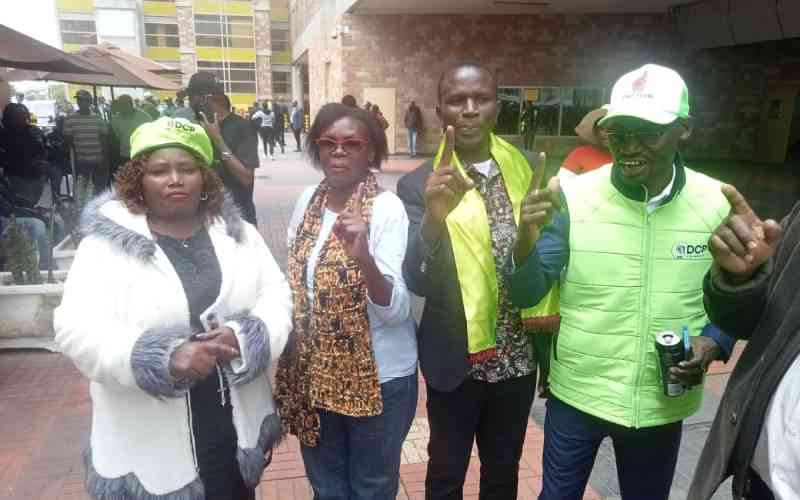Notting Hill Carnival Chaos: Police Brace for Carnage Amidst Security Barrage

Notting Hill, the iconic West London neighbourhood famed for its charming streets and vibrant culture, is currently navigating significant changes impacting both its daily life and its grand annual carnival. New restrictions and heightened security measures are reshaping the area, leading to mixed reactions from residents, traders, and visitors.
One notable change involves Portobello Road, a central hub for the area's market and popular among tourists for its connection to the 1999 romantic comedy, 'Notting Hill.' New rules, implemented on advice from counter-terror police, ban cars from the street between 10 am and 4 pm, with some sections having restrictions throughout the week or on specific days. To enforce this, large concrete blocks and red barriers have been strategically placed. While intended to prevent vehicle attacks and enhance safety, these imposing structures have drawn criticism for detracting from the street's historic and vintage aesthetic. Tourists, including fans of the 'Notting Hill' film, feel the visible restrictions would alter the movie's atmosphere if filmed today, with some lamenting them as a 'sign of how we live now.'
Beyond aesthetics, these barriers have caused practical and financial difficulties. Market traders report struggling to restock stalls due to vehicle access restrictions before 4 pm, leading to significant drops in footfall and business, comparable to the worst trading periods since Covid. Local residents have also been affected, with one former lawyer, Patrick Somers, leading a legal challenge against Kensington and Chelsea council. He argues the changes were poorly thought out, lacked sufficient consultation, and have created unintended consequences, including impeding emergency vehicle access. Somers recounted a concerning incident where an ambulance was reportedly unable to reach a child experiencing respiratory problems due to the barriers, requiring paramedics to walk significant distances with heavy equipment. While acknowledging the necessity of anti-terror measures, critics suggest more effective and aesthetically pleasing solutions, such as bollards, have been successfully implemented elsewhere in London.
Adding to the area's evolving security landscape are the measures for the Notting Hill Carnival, Europe's largest celebration of Caribbean culture, which draws over a million people annually. This two-day event, while a joyous spectacle, presents the Metropolitan Police with its biggest annual policing challenge due to persistent concerns over crowd safety, escalating violence, and potential crushes. Last year saw the highest number of arrests since 2019, with 349 detentions, and two murders, along with over 60 officers injured. Concerns about a mass crush on the scale of the Hillsborough disaster have been raised by politicians, prompting calls for strict crowd management.
In response, approximately 7,000 police officers and staff are deployed daily during the carnival. A controversial policy, first implemented in 2019, bans officers from dancing with revellers. The Met justifies this by stating officers need to remain vigilant and ready to respond swiftly to crime, asserting that their role is to keep revellers safe, not to join in the festivities. Furthermore, police are controversially deploying live facial recognition (LFR) systems on approaches to the carnival. These cameras aim to identify wanted suspects, missing persons, and individuals with sexual harm prevention orders by comparing live footage against watchlists. The system generates alerts for officers to review, ensuring further checks before intervention. This technology, however, faces strong opposition from 11 civil liberty and anti-racist groups, who argue it is discriminatory, less accurate for women and people of colour, and lacks a proper legislative basis. Despite these concerns, the Met defends its use, stating it is deployed only for serious offences and has led to hundreds of arrests this year.
To facilitate the carnival, the anti-terror concrete barriers on Portobello Road are temporarily removed for two weeks to allow free movement. Carnival organizers emphasize that issues like knife crime and youth violence are national problems rooted in poverty, inequality, and lack of hope, rather than being caused by the carnival itself. They have announced strengthened operational infrastructure, including more trained stewards, expanded CCTV coverage, faster response systems, and enhanced crowd management. After facing funding challenges, the event secured financial support from City Hall and local councils, allowing it to proceed. The carnival also includes initiatives like a partnership with the Elba Hope Foundation to tackle knife crime and a planned 72-second silence to honor victims of the Grenfell Tower fire and Kelso Cochrane, acknowledging the event's deep cultural and community roots amidst its modern-day challenges.
You may also like...
Atalanta Coach Slams Lookman: 'I Won't Beg Him to Play!'

Ademola Lookman is set to miss Atalanta's Serie A clash against Lecce, as Head Coach Ivan Juric publicly questioned the ...
Ruben Amorim Lays Down the Law for Man Utd's Kobbie Mainoo: 'Talent Not Enough!'

Manchester United midfielder Kobbie Mainoo's request for a loan move was blocked, leading manager Ruben Amorim to clarif...
Star-Studded Deauville Festival Bash: Kristen Stewart, Zoey Deutch & More Dazzle

The Deauville American Film Festival hosted a star-studded dinner by Canal+ Group and Chanel, celebrating French and Ame...
Ice Cube's 'War of the Worlds' Shocker: Filmed Solo in 15 Days Without Director

Ice Cube sheds light on the turbulent production of the 2020 film “War of the Worlds,” revealing his scenes were shot in...
Sharon Osbourne's Heartbreaking Silence Broken After Ozzy's Tragic Passing

Sharon Osbourne has broken her silence following the death of her husband, Ozzy Osbourne, expressing deep gratitude for ...
Mystery 00s Pop Superstar Ditches BBC Podcast for Explosive New Music Return

A flurry of celebrity news unfolds, with Lily Allen exiting her BBC podcast to focus on new music and Olivia Attwood sta...
Music Icon Elton John Hospitalized, Shares Alarming Photos From Bedside

Sir Elton John sparked concern among fans with hospital bed photos featuring elaborate casts, only to reveal it was for ...
Mum's 'Sick Day' Holiday Lie Exposed by Five-Year-Old Son's Jet2 Tenerife Confession

A mum's attempt to take her son on a term-time holiday humorously backfired when her five-year-old 'grassed' on her fabr...


:max_bytes(150000):strip_icc()/TAL-quelimane-mozambique-church-QUELIMANE0724-00e1f65f77964776b671158d19cd9c0d.jpg)